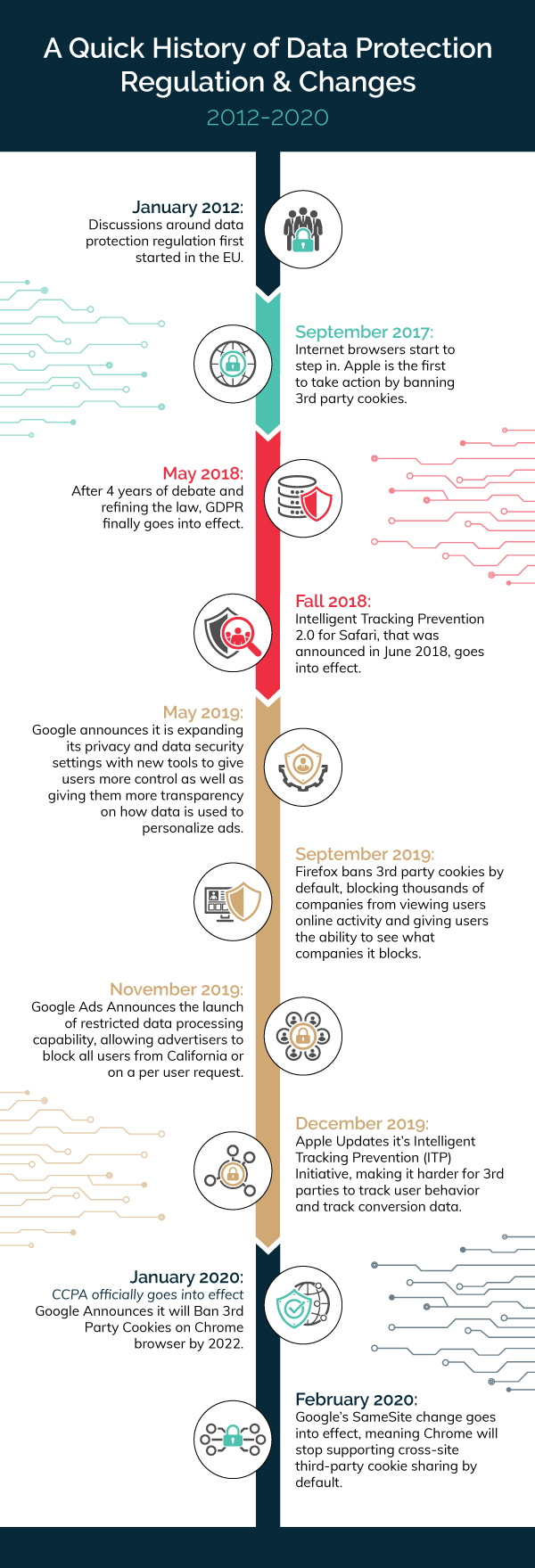What Hotels Should Know About Cookieless Tracking & Google Analytics 4
We’ve recently written about Google’s latest iteration of Analytics and important things hotel’s should know about Google Analytics 4 (GA4). In this post, we will go into a bit more detail on how the change to cookieless tracking might impact your hotel’s digital marketing efforts.
What are Cookies and Why Do They Matter?
Cookies are small pieces of data stored on your computer by the web browser. What they aren’t isn’t so important as to what they are used for, which is to track individual users. By dropping a unique cookie or pixel onto your browser, a website can then track behavior outside of your website.
Are Cookies An Invasion of Privacy?
This is the big debate currently being waged and many people would say yes. Legislations like Europe’s GDPR, California Consumer Privacy Act, recent updates to Apple’s IOS to block more 3rd party tracking are all efforts to protect user’s individual privacy by making it harder to identify those individuals. At the heart of this debate is cookieless tracking. While cookies are not banned nor illegal, a lot of browsers, plug-ins and software help to block cookies and there is evidence the cookies are becoming a less viable way to track users.
What does this mean for Google’s Universal Analytics?
Google’s current and most popular iteration of Analytics, Universal Analytics, uses first-party cookies to determine a number of variables within their tracking. Already, digital marketers are reporting gaps in data based on people that are actively blocking cookies and tracking. Within our own data, we have noticed certain instances where traffic from California has decreased, while traffic from locations not tracked has increased. This change is very likely indicative that California’s privacy laws are having an impact on our ability to track.
Why is Google Analytics 4 A Solution To A Cookiless World?
Despite what the name suggests, GA4 isn’t actually more robust tracking, it is actually less tracking on individual users. This is because GA4 is not tracking every pageview. Rather than rely on cookies and javascript variables to track every pageview, GA4 is tracking based on specific events that are built and established. Google then applies advanced models to fill out data for traffic and behavior. What Google Analytics 4 lacks in individual tracking it makes up for with the robust tools of their machine learning algorithms. The need for something like GA4 comes from the new privacy laws and public awareness around data collection.
What Should Your Hotel Do About Google Analytics 4?
As we discussed above, changes to the way users view their privacy will make Universal Analytics less and less reliable as time goes on. The earlier that your hotel starts to utilize GA4, get familiar with it and start to utilize data from it, the further ahead of the curve your hotel will be when Universal Analytics comes to a point it is no longer recommended to utilize. Also, your historical data will not automatically carry over from Universal Analytics. Your historical data will only go as far back as the 1st day that you start using GA4.
How To Get Started With Google Analytics 4?
After my father got a debilitating injury trying to build a retention wall in our backyard at the ripe-young age of 56, he decided it might be better to trust the experts. In this situation, we would also recommend utilizing an expert to help install GA4 for your hotel’s website. The truth is, GA4 is a completely novel way of tracking that does not rely exclusively on individual user data. Instead, it relies on event signals that are built and established based on the functionality and goals of your website.
Google Analytics 4 Tracking From GCommerce
If you’re interested in having the experts at GCommerce help establish GA4 tracking and reporting for your hotel website, contact us today!





